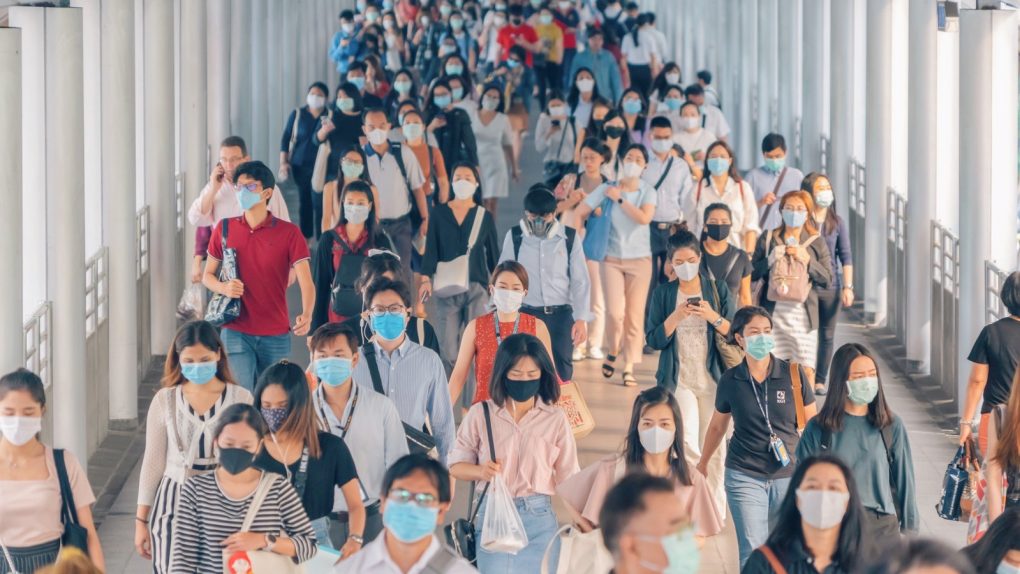- The spread of the novel coronavirus aboard airplanes might be a lot less common than people initially thought.
- A study found that the chances of getting COVID-19 during a flight are 1 in 4,300 on short-distance flights, assuming everyone wears face masks. The odds drop to 1 in 7,700 if the middle seat is unoccupied.
- Other studies have shown that coronavirus transmission is possible aboard planes, but it might be limited.
- Needless to say, the risk of spreading COVID-19 aboard a plane can’t be eliminated entirely.
Spending considerable time in a crowded place to check-in and drop your bags and go through security checks, only so you can wait next to other people prior to boarding is part of regular flying experience. As is spending several hours in a crowded plane while it takes you to your destination. Add the novel coronavirus pandemic on top of all that, and the already annoying flying experience becomes incredibly scary. But more and more research seems to indicate that flying during the health crisis might be safer than most people thought, especially when you consider the safety measures airlines employ, including face mask mandates.
A study a few days ago explained that at least two people caught COVID-10 aboard a plane flying from Tel Aviv to Frankfurt in mid-March after possibly coming in contact with people who were exposed to the virus a week before the flight. The study had some key limitations, like the fact that researchers could not tell whether the two people were infected during the four-hour flight or at the airport. More importantly, the researchers did not have data about some of the other passengers, so they did not know whether more people were infected after that flight.
Aside from that study, CNN details two other instances where passengers on flights were screened for coronavirus.
In one of the cases, 328 passengers and crew members were tested after it was discovered that 12 people aboard a flight from the US to Taiwan were asymptomatic carriers. The trip took place on March 31st, and none of the other people tested positive for SARS-CoV-2.
On the other hand, a flight from the UK to Vietnam on March 2nd had one infected passenger, and that person spread the virus to 14 others as well as a crew member.
All of these flights happened in the early weeks of the coronavirus outbreaks in Europe and the United States, at a time when not everybody was being advised to wear face masks. Since then, airlines have gone to great lengths to ensure they can offer a flight experience that is as safe as possible. The middle seat is often left empty. Crews started wearing personal protective equipment, and planes are cleaned more often. Airlines have also started requiring that passengers wear face masks.
Add to that the air conditioning system aboard modern planes, which replaces the cabin’s air every two to three minutes while filtering 99.99% of particles in the air, and the risk of getting COVID-19 on board a plane drops even further.
A professor of statistics at the Massachusetts Institute of Technology’s Sloan School of Management tried to quantify the risk of spread aboard an airplane. Arnold Barnett found that the figure is 1 in 4,300 for short flights that have three seats on either side of the aisle, as long as everybody wears a mask. The odds drop to 1 in 7,700 if the middle seat is left empty. That’s still not zero, and it never will be as long as the novel coronavirus pandemic is here.
“Most things are more dangerous now than they were before COVID, and aviation is no exception to that,” the professor told CNN Travel. “But three things have to go wrong for you to get infected (on a flight). There has to be a Covid-19 patient on board, and they have to be contagious. If there is such a person on your flight, assuming they are wearing a mask, it has to fail to prevent the transmission. They also have to be close enough that there’s a danger you could suffer from the transmission.”








